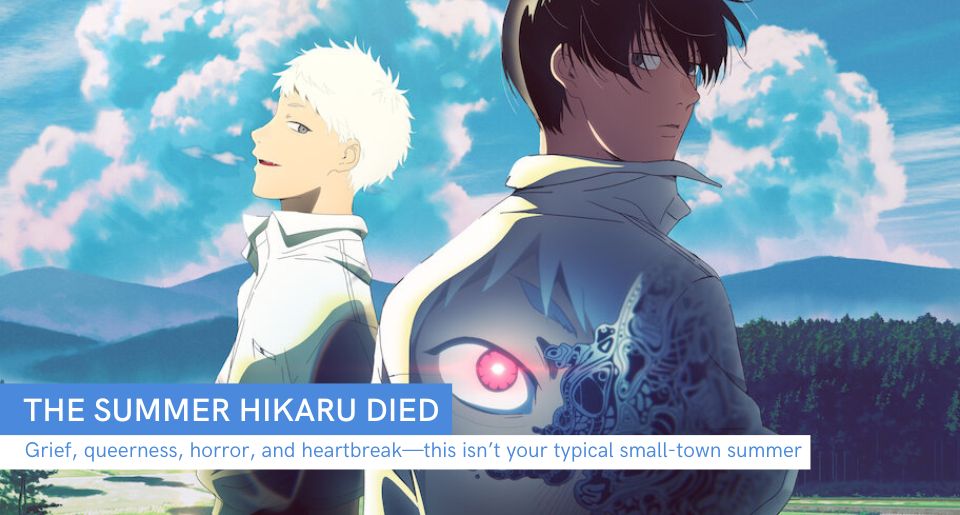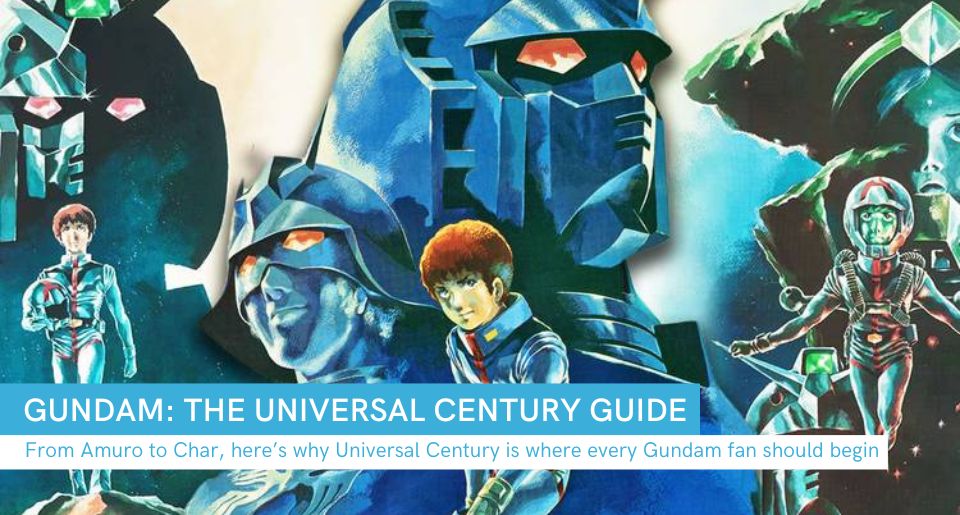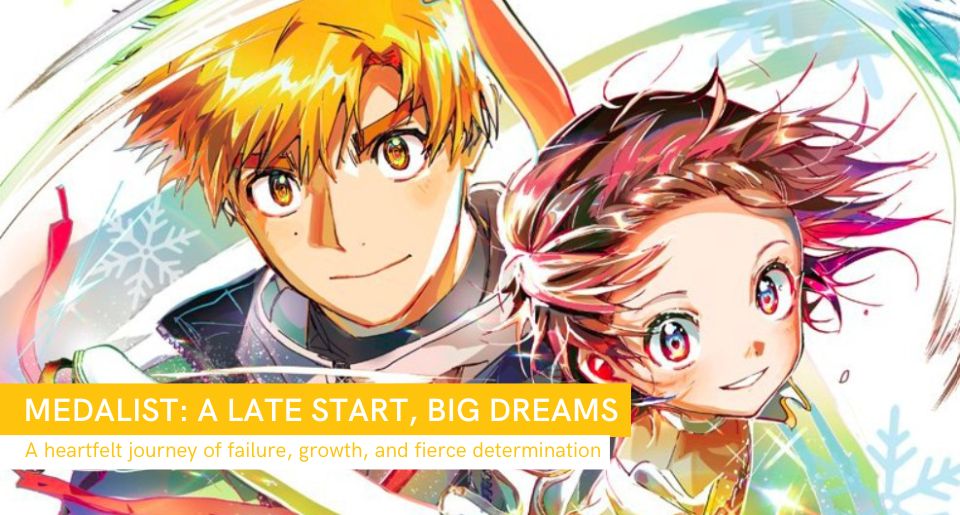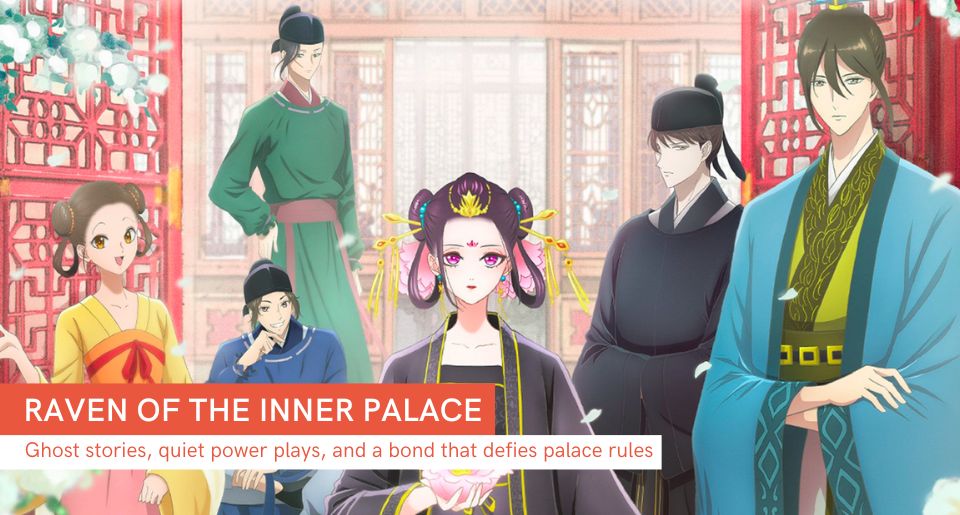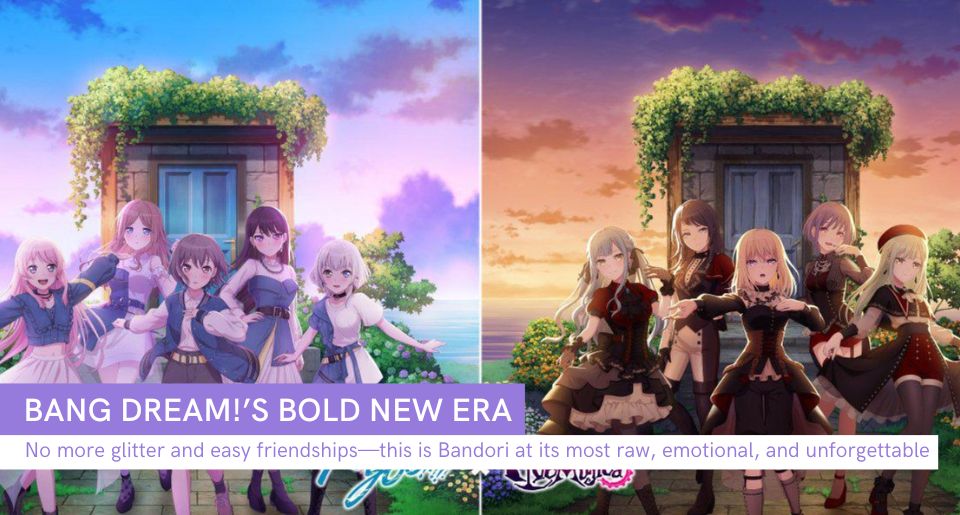Contents
- So What’s It About?
- It’s Not Just Horror—It’s Grief Horror
- Let’s Talk About the Gay Elephant in the Room
- The Anime? Absolutely Gorgeous
- Yoshiki: One of the Most Complex Protagonists in Horror
- The Manga is a Work of Art (Literally)
- Final Verdict: Watch It, Read It, Feel It
- What do you think?
- About the Writer
There’s something about small town summers that makes for the best kind of horror. Maybe it’s the stillness. The unbearable heat. The way the days drag on like nothing will ever change—and then suddenly, something does. Something horrible. Unthinkable. But no one really talks about it.
In The Summer Hikaru Died, that’s exactly where we begin: two teenage boys, Yoshiki and Hikaru, living their slow, uneventful lives in the middle of nowhere. The town’s forgettable, quiet, and a little eerie if you stop to think about it—but that’s just how rural Japan is. They don’t have much, but they have each other.
Until the day Hikaru disappears. And something else—something not quite human—comes back instead.
So What’s It About?
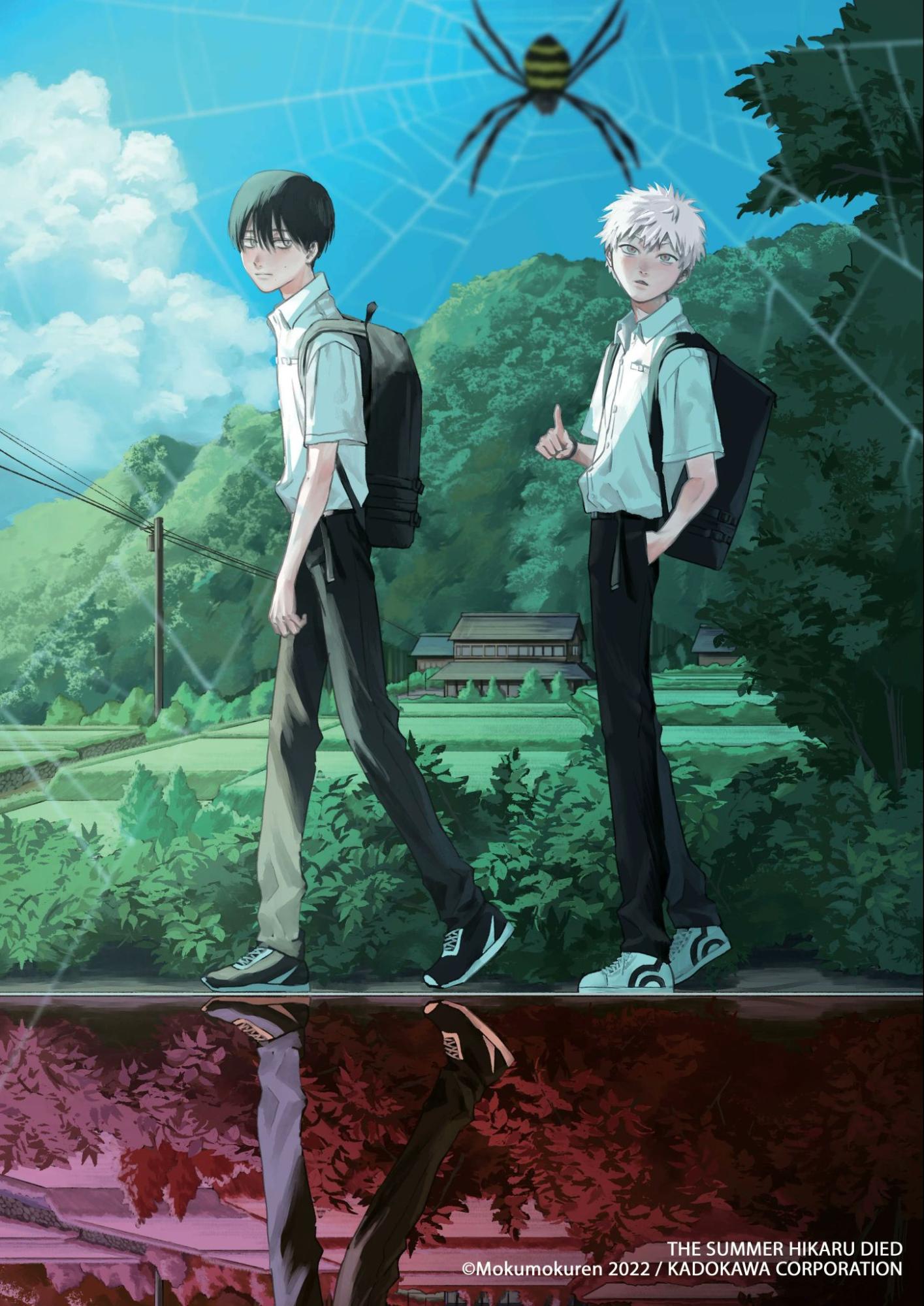
Hikaru Indou and Yoshiki Tsujinaka, as seen in the manga.
Yoshiki and Hikaru are just two regular boys living in a tiny town called Kubitachi in the middle of nowhere. It’s the kind of place where nothing really happens, and people live quiet lives surrounded by mountains, bugs, and old superstitions. Yoshiki is quiet, moody, and emotionally guarded. Hikaru, on the other hand, is outgoing, cheerful, and is constantly teasing Yoshiki. Their personalities couldn’t be more different, but they’re inseparable.
Until one summer, Hikaru dies. But nobody knows that—because something else takes his place. Something not human.
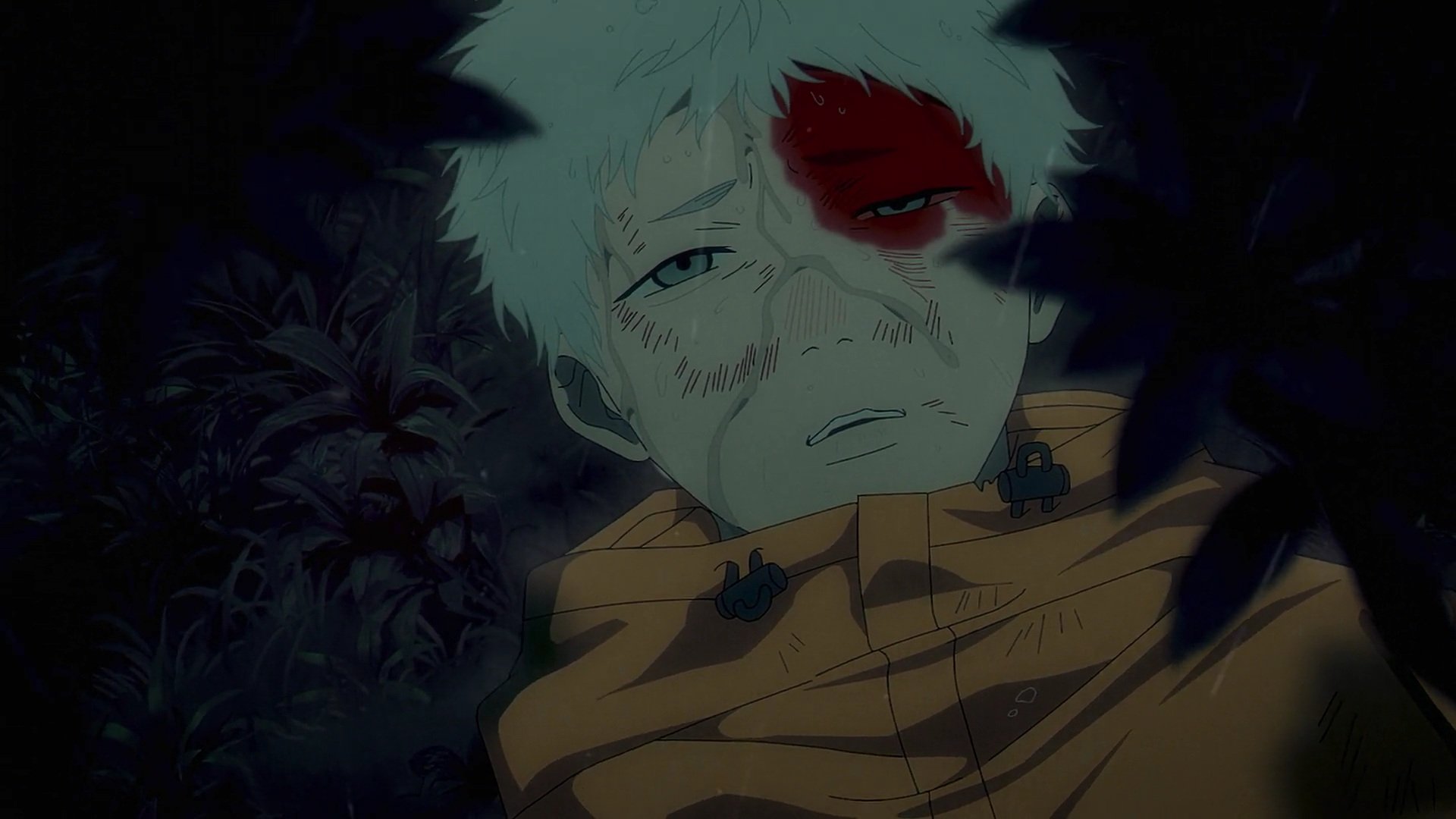
Before his death, Hikaru asks Unuki-sama, who was nearby, to be with Yoshiki so he wouldn’t be alone.
The creature does a disturbingly good job pretending to be Hikaru. It has his memories. It mimics his voice and smile. It tells Yoshiki it still loves him. And Yoshiki… doesn’t run. He knows this isn’t the friend he grew up with. But he also knows he can’t say goodbye again.
And so begins a story about grief, identity, co-dependency, and queer longing, wrapped up in a beautifully drawn horror manga that feels more like a fever dream than a conventional narrative.
It’s Not Just Horror—It’s Grief Horror
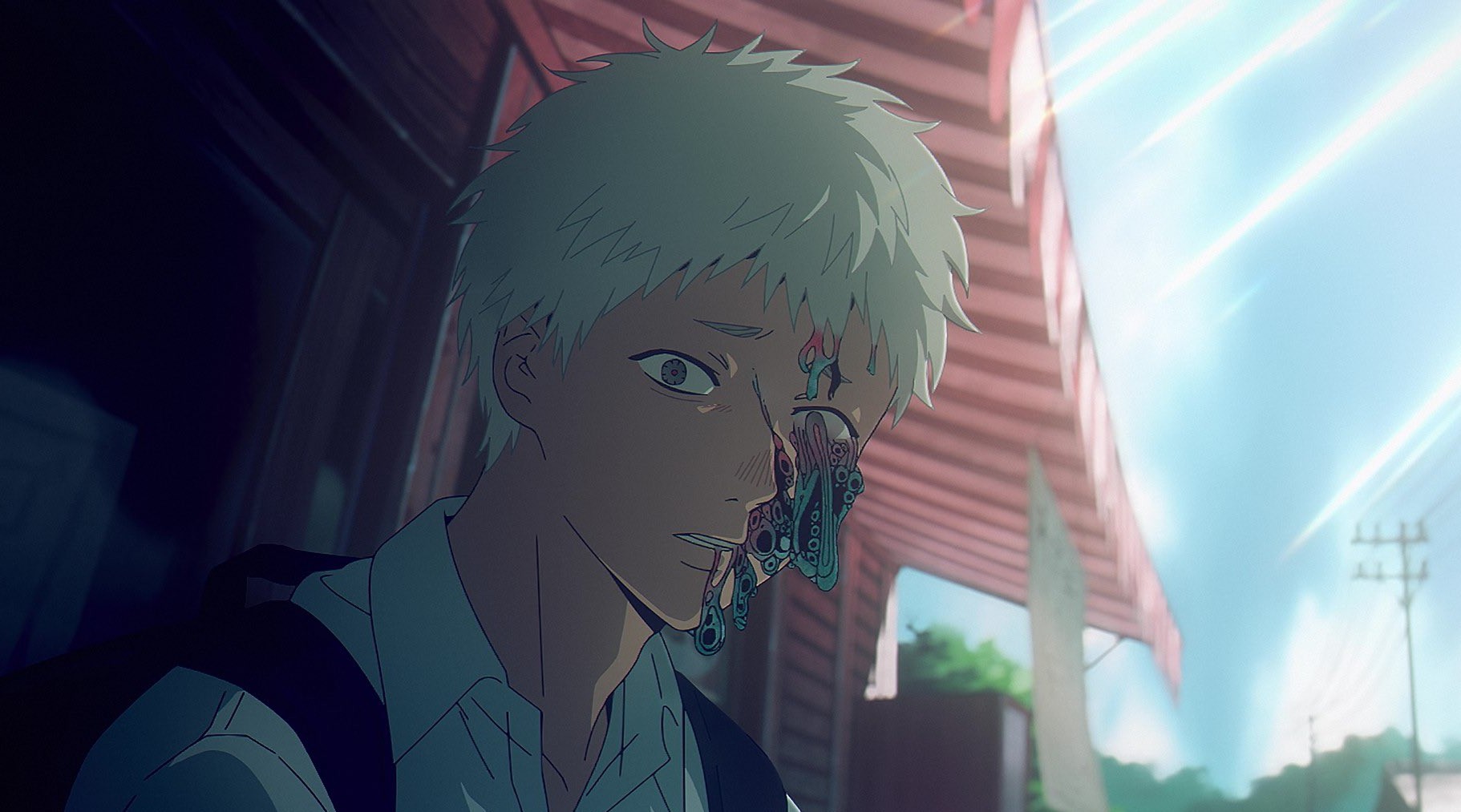
“Hikaru” panics—and his ‘insides’ leak out of his body—when Yoshiki tells him that he knows he isn’t the real Hikaru.
At its core, The Summer Hikaru Died isn’t really about aliens, monsters, or apocalyptic threats. It’s about the kind of horror that sits heavy on your chest late at night—the horror of losing someone, and what you’d do to avoid that pain again.
Grief in this story is messy. It’s desperate. It doesn’t always make logical sense. Yoshiki isn’t trying to stop the creature. He’s not calling the cops, rallying the town, or even trying to exorcise it. He’s just trying to cope.
There’s this eerie balance between fear and comfort that permeates every scene. Hikaru (or the thing wearing his skin) never acts outwardly malicious. In fact, he seems to genuinely care about Yoshiki. And that makes it worse. Because how do you grieve someone who’s still technically right in front of you? How do you say goodbye when part of you doesn’t want to?
Ren Mokumoku’s writing doesn’t offer easy answers. In fact, it avoids them entirely. The series lets questions hang in the air like the thick summer heat. And that ambiguity? That quiet, slow unraveling? That’s what makes it brilliant.
Let’s Talk About the Gay Elephant in the Room
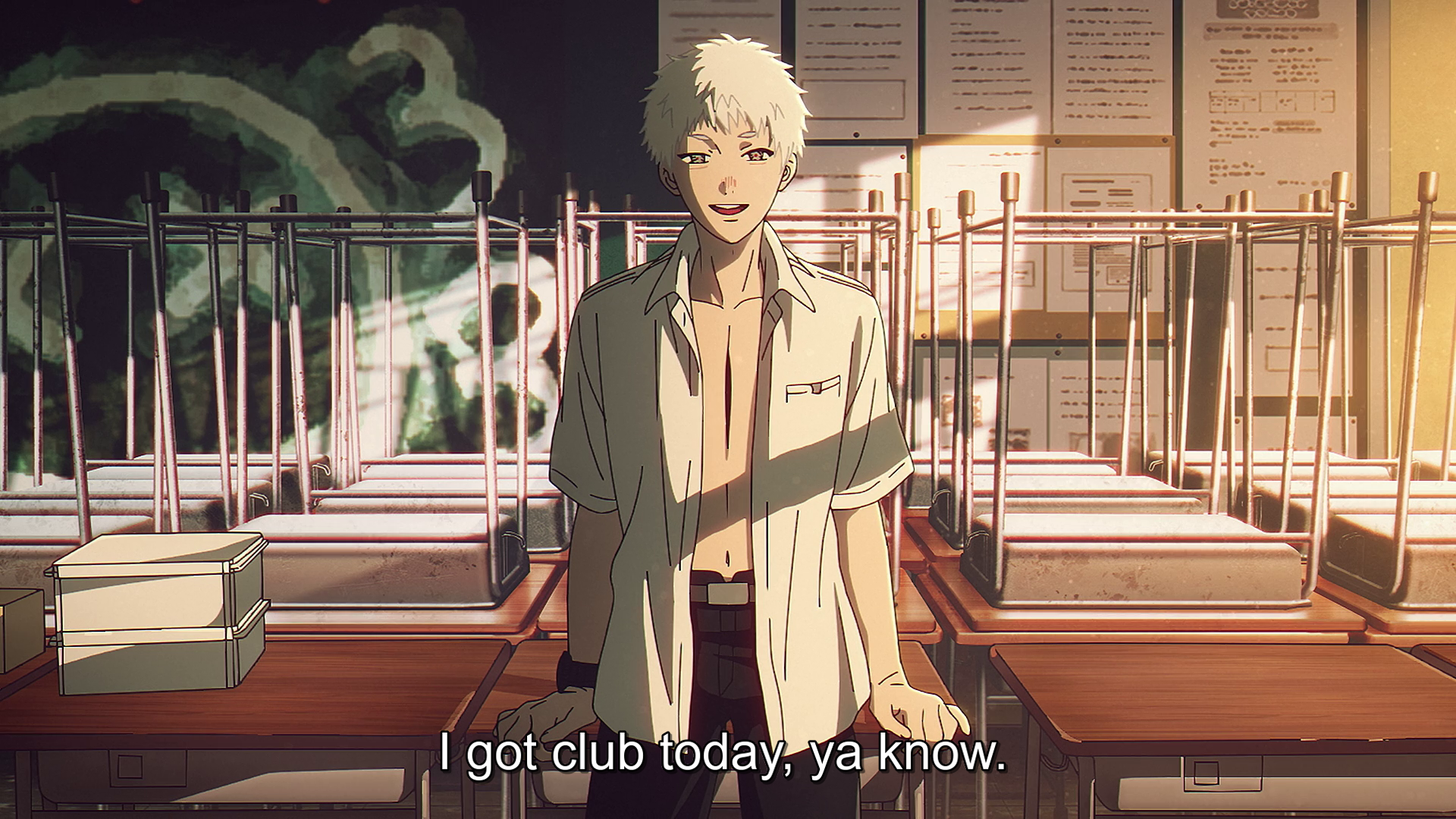
Yoshiki and “Hikaru” sneak into an empty classroom so that Yoshiki can ‘touch’ him again. And no, it’s not what it looks like.
Yes. This story is gay. Like, really gay. Not in a “haha they’re just friends” kind of way. Not in a fanservice-y, bait-y, BL cash-grab way either. This is a story where the emotional core is tangled up in repressed desire, longing, and a level of intimacy that can only exist between two people who love each other but don’t have the words—or freedom—to say it.
Yoshiki’s feelings toward Hikaru aren’t explicitly stated, but you don’t need a confession scene to know it. It’s written in the way he looks at him. The way he breaks down when he realizes something is wrong. The way he refuses to let go, even when it’s clear he should.
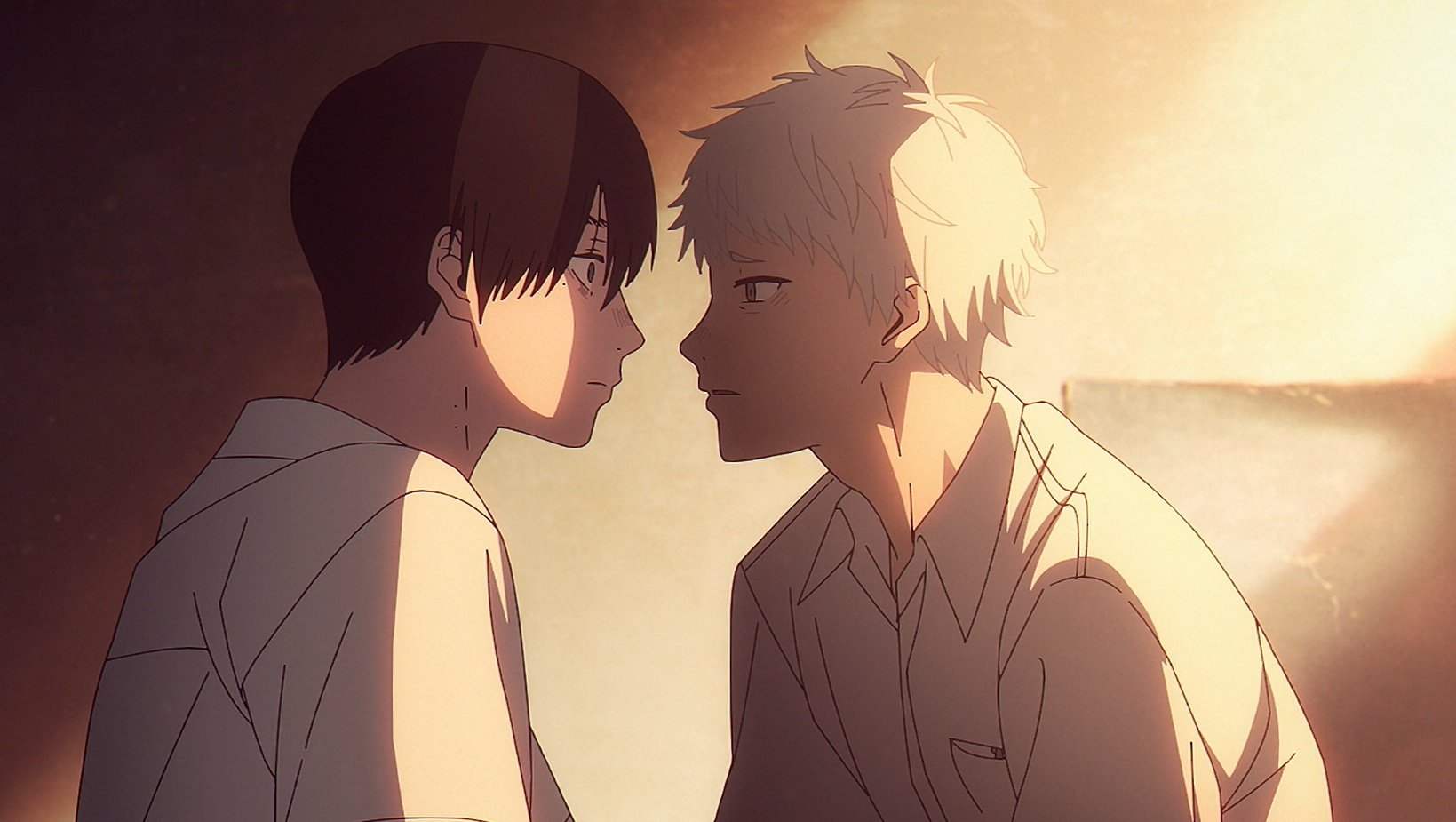
“Hikaru” asks Yoshiki to let him stay by his side, and to not hate him despite what he did before.
This isn’t just subtext, either. The monster that replaced Hikaru literally confesses love to Yoshiki. It doesn’t do it to manipulate him or get something in return. It says it with conviction. And Yoshiki, haunted by memories and his own confused heart, agrees to keep its secret.
Queer horror is a genre that rarely gets its due, but The Summer Hikaru Died is a perfect example of it done right. The horror here isn’t that the love is monstrous—it’s that it might not be real. Or worse, that it is real, but it doesn’t belong to the boy Yoshiki loved anymore.
The Anime? Absolutely Gorgeous
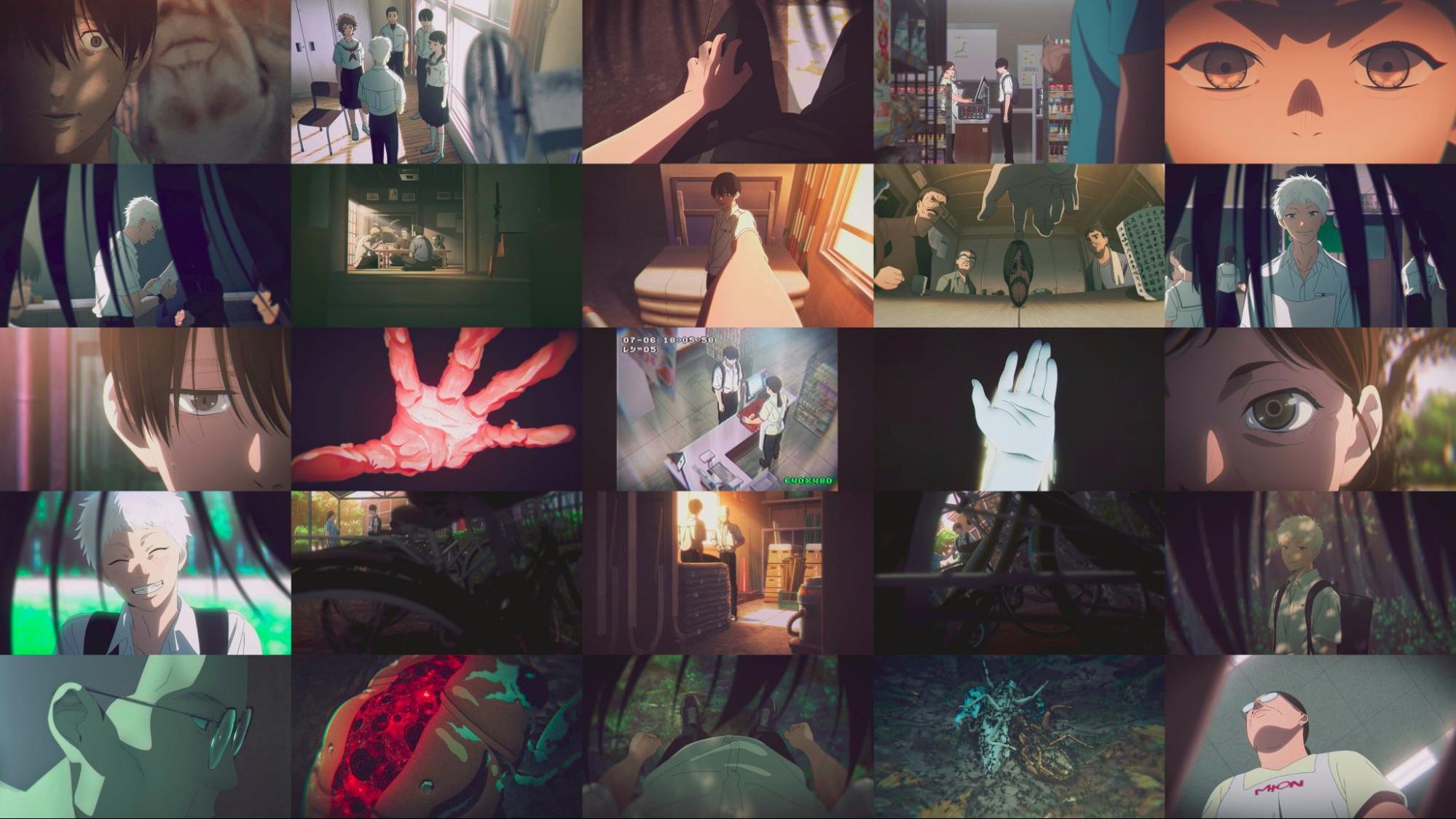
The atmosphere of the anime truly captures the eeriness of the manga.
When the adaptation by CygamesPictures was announced, fans of the manga were cautiously optimistic. Horror manga adaptations are notoriously hard to get right—either they lose the pacing, the art direction falls flat, or the vibe just doesn’t land.
But somehow, Cygames pulled it off.
The animation isn’t flashy, but it’s atmospheric as hell. Long, quiet shots of empty landscapes. Claustrophobic close-ups. Just the right amount of grainy texture to make you feel uncomfortable. The lighting is ridiculous—every sunset feels heavy, every shadow feels alive. The animation isn't flashy, but it's haunting. There’s an intentional quiet to every scene that makes you lean in just to see what’s not being said. Cygames used every drop of their horse girl gacha cash to give this story the care it deserves.
The End of Ms. Matsuura (Jump Scare Warning!) | The Summer Hikaru Died | Clip | Netflix Anime
Messed Up | The Summer Hikaru Died | Clip | Netflix Anime
The sound design? Just as unsettling. You will never hear cicadas the same way again. Even normal sounds—like distant chatter, a door creaking, or a train passing—feel oppressive. And when a cheerful pop song like AKB48’s “Aitakatta” plays, it doesn’t lift the mood. It makes you feel sick. The contrast is too sharp. Too uncanny. It's that perfect type of off-putting that horror needs.
The voice acting also deserves a shoutout. The way “Hikaru” speaks—just a little too perfect—is creepy in a way that’s hard to explain unless you hear it. There’s emotion there, but something’s off, and you feel it in your gut.
Yoshiki: One of the Most Complex Protagonists in Horror
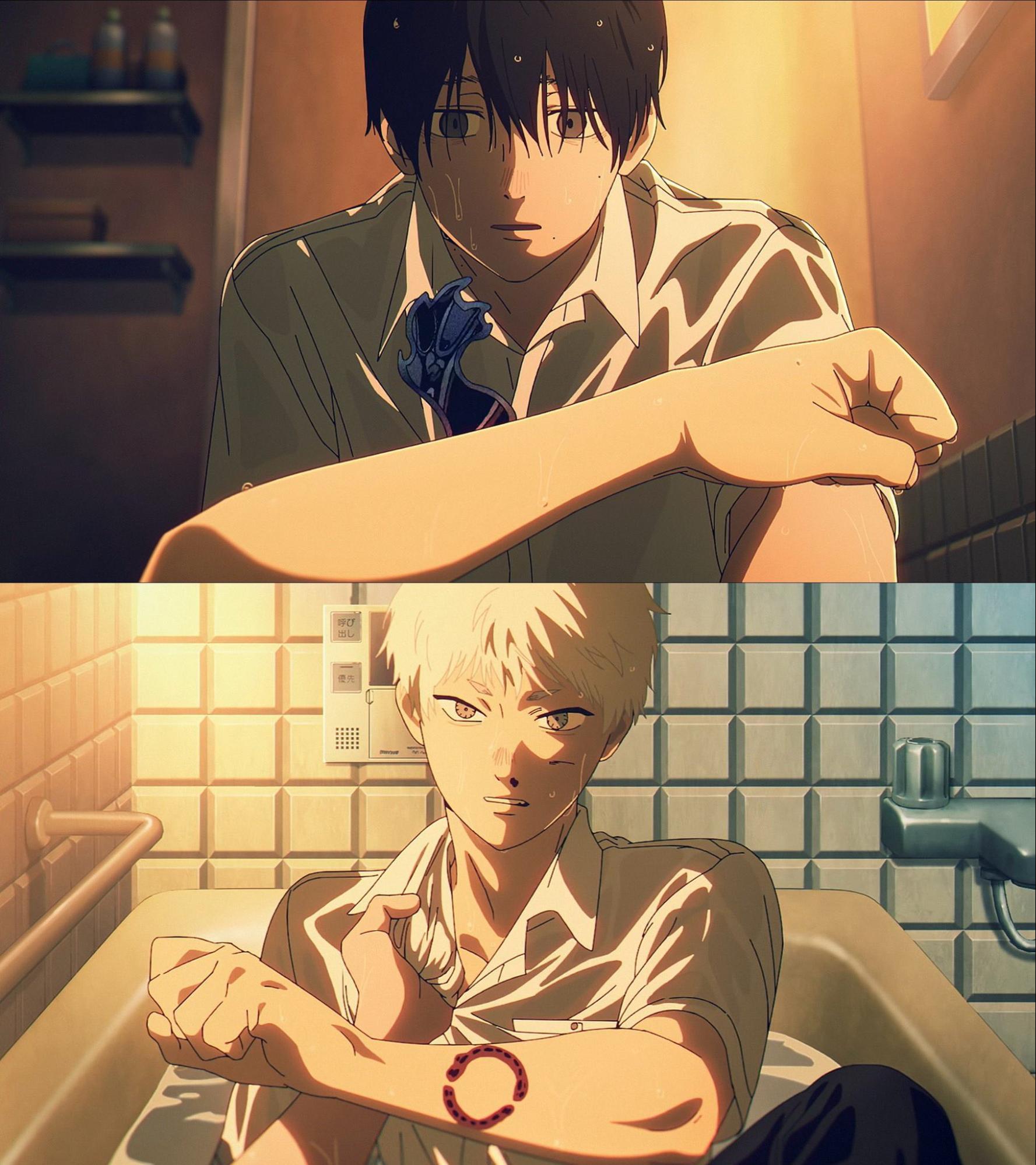
Yoshiki gets possessed by an evil spirit and attacks “Hikaru”.
So much of the story hangs on Yoshiki’s shoulders, and what makes him compelling is how real he feels. He’s not your typical anime protagonist. He’s not brave. He’s not on a mission. He’s just hurt. Conflicted. Quietly spiraling.
He’s repressing his grief, his trauma, and probably his sexuality. And Ren Mokumoku doesn’t spell this out for you. Instead, it’s shown through subtle expressions, offhand comments, and visual storytelling. The way shadows fall on Yoshiki’s face when he talks about the past. The way he stares a little too long at Hikaru. The way his hand lingers when they touch.
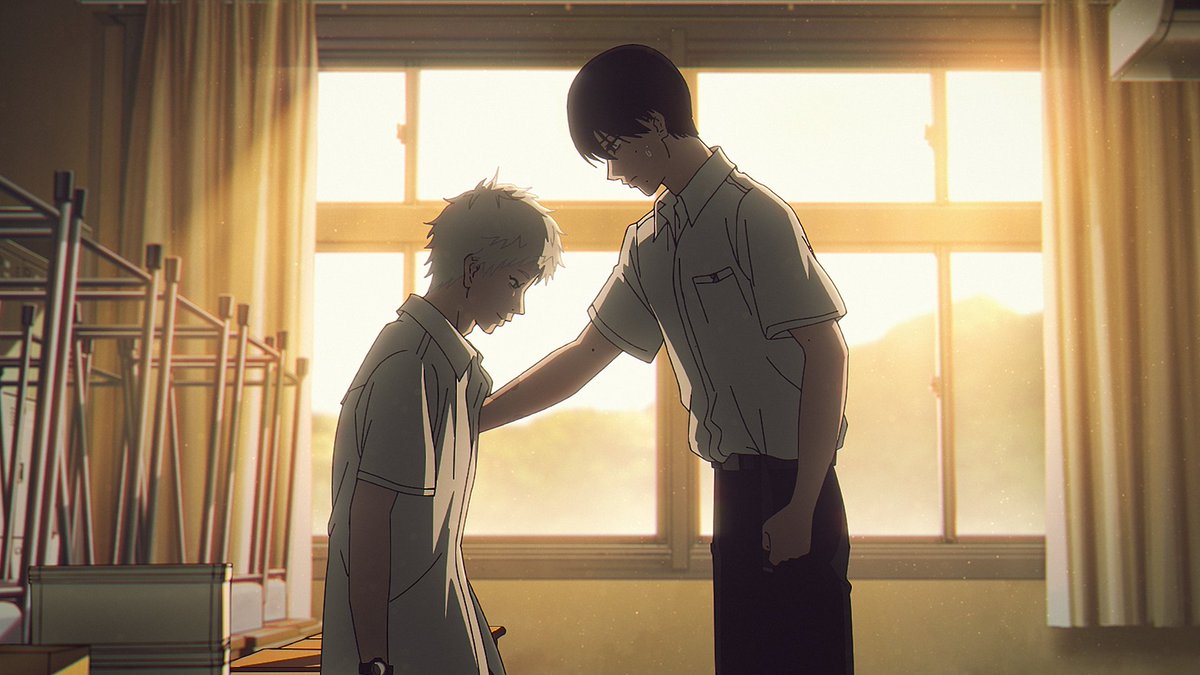
His relationship with “Hikaru” is toxic and co-dependent, and yet so human. He needs comfort. The creature needs acceptance. And so they form this fragile, dangerous dynamic built entirely on fear of being alone.
It’s messy. It’s painful. It’s beautiful.
The Manga is a Work of Art (Literally)
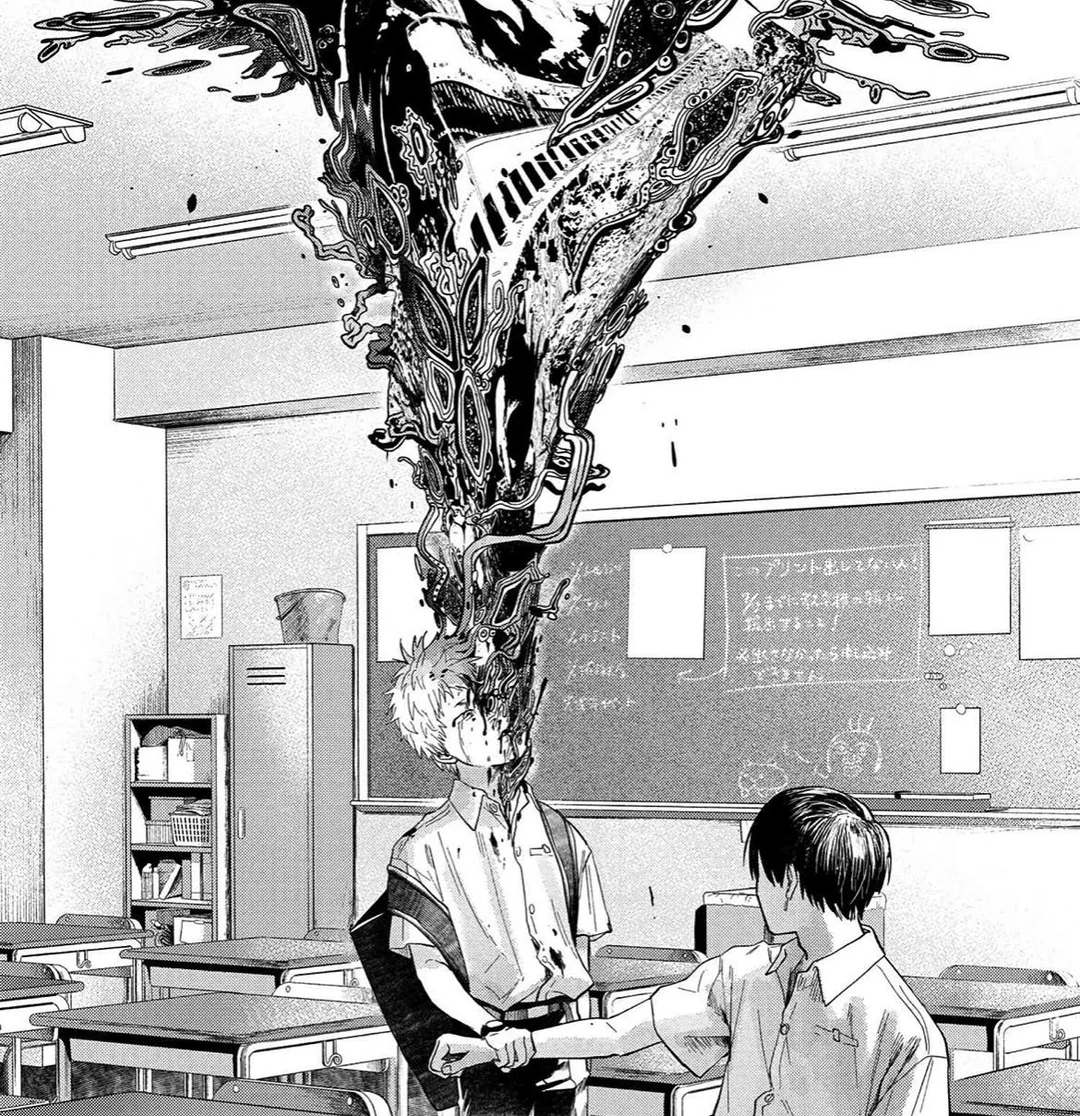
“Hikaru” thinks that Yoshiki hates him and freaks out—and he ends up losing control of himself.
If you’re enjoying the anime, the manga is absolutely worth checking out too. The art style is clean but surreal. Characters are drawn in a way that feels slightly off-kilter, and the backgrounds? Gorgeous. Moody. Unforgettable.
There’s a painterly quality to the way the world is rendered. Panels linger on trees swaying in the wind, the way light filters through leaves, the empty spaces between people. It feels like you’re watching a memory—and that fits perfectly with the story’s themes of longing and absence.
Even comedic scenes are drawn with a strange tension. It’s like the manga wants you to laugh, but also wants you to feel a little guilty for doing so. That tonal tightrope is rare, and Ren Mokumoku walks it with grace.
Final Verdict: Watch It, Read It, Feel It
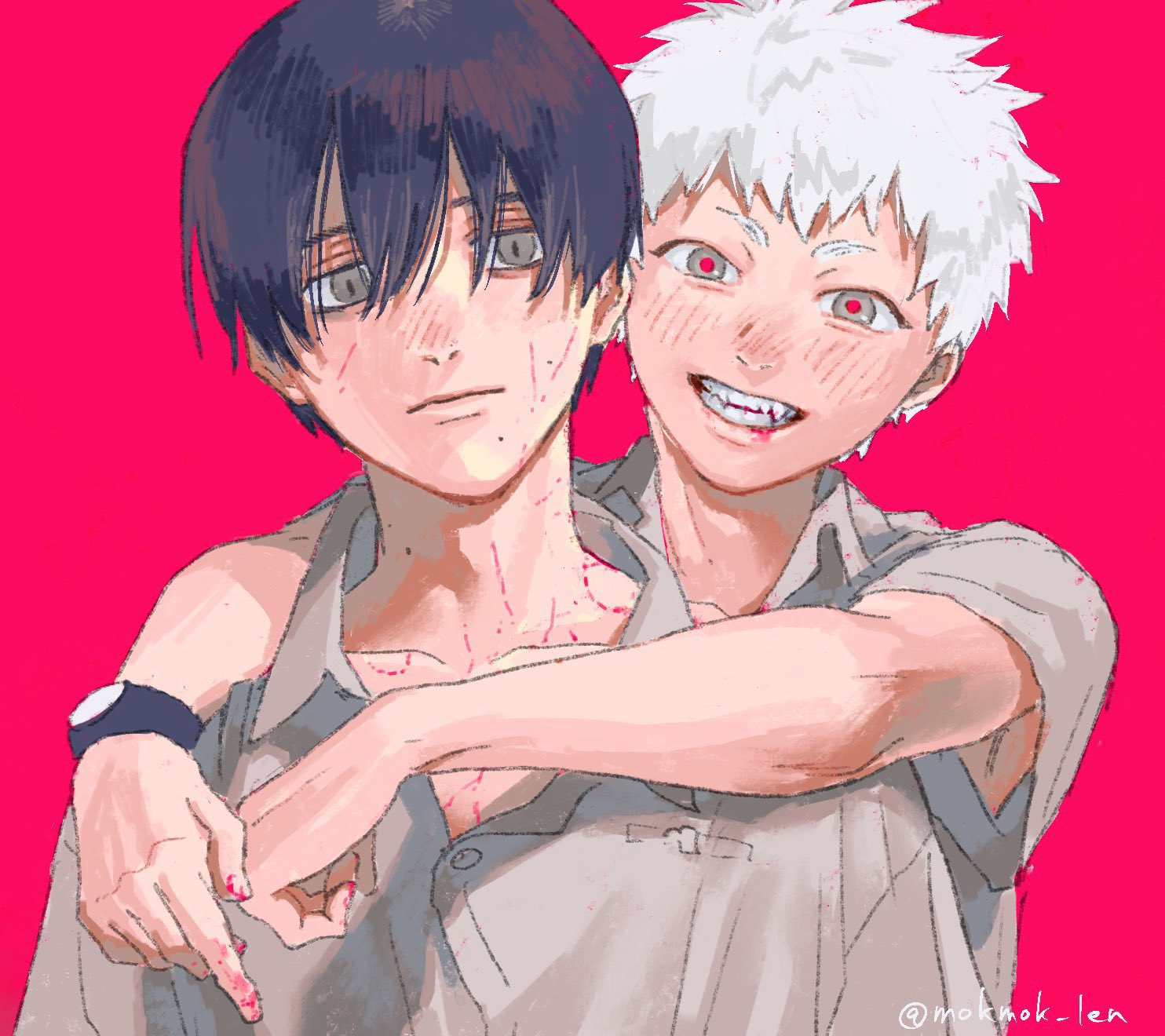
Hikaru and Yoshiki in one of Ren Mokumoku’s early art for the series.
The Summer Hikaru Died is many things. A horror story. A love story. A tragedy. A coming-of-age. A metaphor. A gut punch.
It’s not for everyone. It’s slow. It’s sad. It never gives easy answers. It’ll make you uncomfortable. It’ll make you question what you would do in Yoshiki’s place. Would you run? Would you tell someone? Or would you keep the creature close, just to pretend your best friend wasn’t gone?
But if you’re the kind of person who loves atmospheric horror, introspective storytelling, and emotionally messy characters—you’ll fall in deep.
Honestly? It might be one of the best shows of 2025.
Just be warned: it is gay. Like, really gay. And if that somehow bothers you, maybe you’ve got something to think about.
As for the rest of us? We’re already in too deep. We’re seated. We’re devastated. We’re so, so ready to see how this ends.
The Summer Hikaru Died | Official Trailer 1 | Netflix
The Summer Hikaru Died | Official Trailer 2 | Netflix
「光が死んだ夏」ノンクレジットオープニング「再会」Vaundy:The Summer Hikaru Died Opening
What do you think?
How long can Yoshiki keep the truth hidden?
Is the new Hikaru a threat—or something else?
Will anyone find out what really happened that summer?
Let us know in the comments or drop us a line on social media: X (formerly Twitter), Instagram, Facebook! We’d love to hear from you!
ZenPlus is your one-stop shop for all things Japanese. Check out our marketplace for manga volumes, cosplay, figures, and other merch from the The Summer Hikaru Died franchise!
You can watch The Summer Hikaru Died exclusively on Netflix.
About the Writer
Cristy is a freelance artist and writer who has been obsessed with anime and manga since childhood. Her love for these imaginative worlds fuels her creative endeavors, and she shows no signs of stopping anytime soon.

